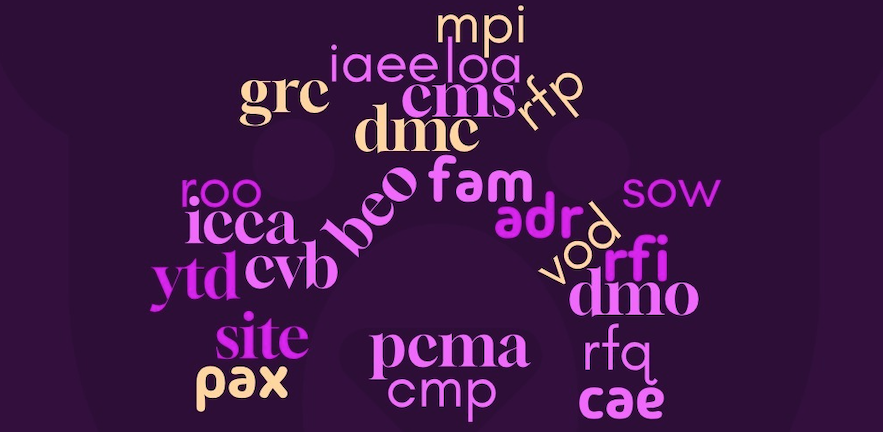F&B, CMP, ADR, DMO—if you’ve ever nodded through a meeting without knowing what was just said, this one’s for you
While scrolling through a social media thread recently, I came across a comment that stopped me cold. It read:
“While you were there I was a 21yo SrA from NYC on top of a 2100′ mountain radar site in Northern California with orders to go to a FOB in Alaska.”
Now, I’m not military. I didn’t immediately know what “SrA” or “FOB” meant. And apparently, I wasn’t supposed to ask.
But I did. And I’m glad I did.
The Curse of the Acronym
Turns out, SrA means Senior Airman, a U.S. Air Force rank typically held by young enlisted personnel. FOB? That’s Forward Operating Base, a remote outpost often in rugged or strategically sensitive terrain—in this case, Alaska. These are standard terms in military circles, but to a civilian like me, they might as well have been in Klingon.
What gets me is how freely people throw around abbreviations like these—as if everyone’s supposed to be fluent in every pocket dialect of every industry. Military speak. Tech jargon. Government-speak. Even the wellness world has its own acronym maze (WOD, AMRAP, PR… WTF?).
And if you’re a meeting or event planner, you’re probably nodding already.
Because you live this.
From RFPs to CMPs, ADR to F&B, planners are bombarded with acronyms at every turn. Hotels, vendors, clients, DMOs, AV teams—they all have their own shorthand. And let’s be honest: sometimes it feels less like professional language and more like an initiation rite.
Before Google, There Was Peace
Back in the analog age, when you didn’t know something, you simply… didn’t know. If you were curious enough, you’d head to the library or ask someone who might know more. But there was no shame in not having the answer right away. “I’ll look it up later” was a common—and perfectly acceptable—response.
Today, that phrase feels almost quaint.
The internet has rewired how we deal with uncertainty. Not knowing something isn’t a benign gap anymore; it’s a source of low-grade anxiety. If you can Google the answer instantly, why haven’t you? What’s wrong with you?
FURTHER READING: BREAKING THE EMOJI CODE
Living Against the Question
We’ve gone from living with questions to living against them. There’s an unspoken pressure to resolve confusion on the spot, not because the answer is urgent, but because it’s available. We’re all playing a perpetual game of trivia, where the prize is peace of mind and the cost of delay is self-doubt.
Ironically, while we’ve gained knowledge, we’ve lost a bit of humility. We confuse speed with understanding. We value the answer more than the path to it. And in our rush to feel smart, we often forget how to be curious.
Plain English, Please
So here’s a modest proposal: If you’re going to use an acronym or a bit of insider lingo—pause and offer a quick translation. Not everyone reading your comment, post, contract, or rooming list went to the same boot camp or vendor orientation.
This isn’t about dumbing things down. It’s about making things clearer—and more inclusive.
Because when the goal is to bring people together (which, after all, is what event professionals do), a little plain English can go a long way.
Any thoughts, opinions, or news? Please share them with me at vince@meetingsevents.com.
Photo by wordclouds.com





